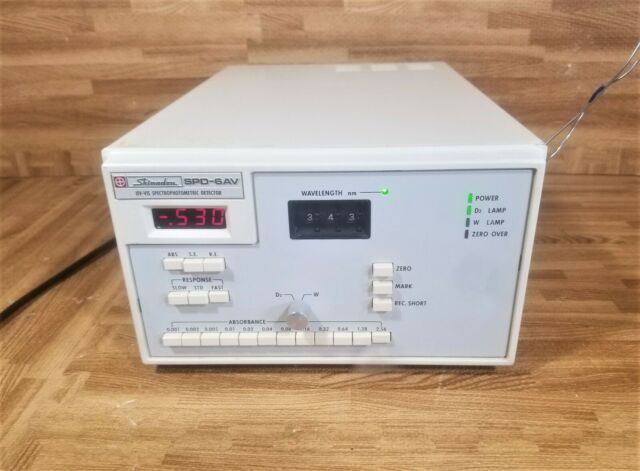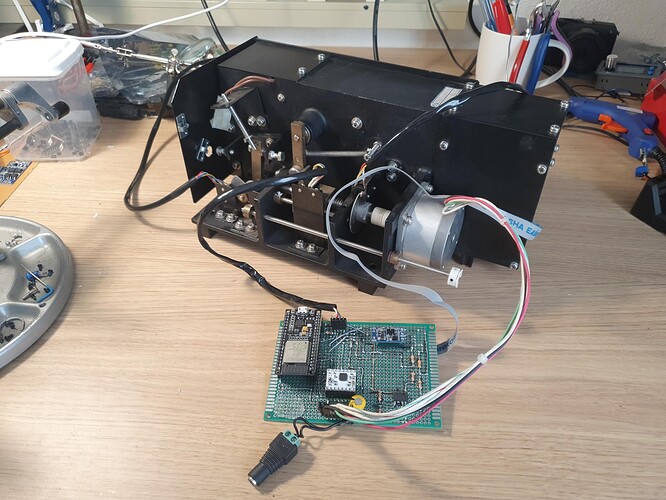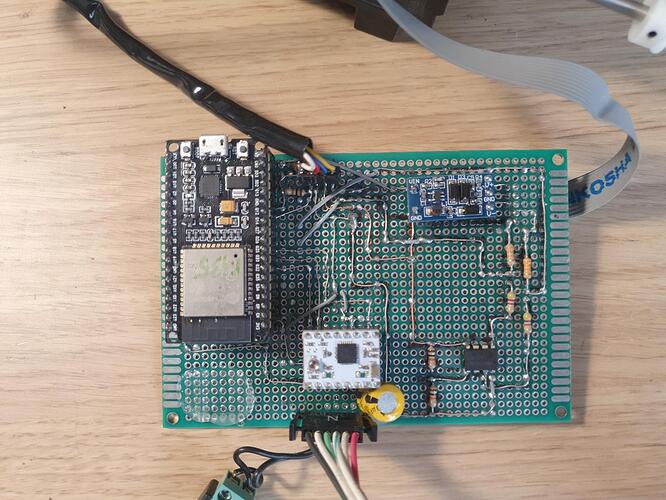1. Name of applicant
Marc Juul
2. Email address
3. What track are you applying to?
New project track.
I was working on this before the pandemic happened and got a good part of the way toward a minimal viable prototype, but it’s definitely not yet an established project.
4. Tell us about your project in one or two sentences
Drop-in replacement “brain” to liberate and modernize affordable off-the-shelf but out-dated spectrophotometers. Includes open source web-based GUI for control and logging.
Link: https://gitlab.com/juul/spectrometer-resurrector
5. Describe your project goals and how you expect to achieve them
Analysis is often one of the most expensive, and thus inaccessible, parts of a modern molecular biology lab. Spectrophotometry is one of the most commonly-used analysis methods, yet existing open hardware designs focus almost exclusively on visible light readings of hand-pipetted samples - even though features such as UVC capability and HPLC flow cell measurements open up many important avenues of research.
This limitation of current open designs is reasonable given the cost of UVC-compatible optics and high pressure flow cells. Even if an open design is available, the cost of the components alone will put it out of reach for many.
An intermediate solution is to re-purpose the optics and mechanics of old, outdated and off-the-shelf spectrometry equipment. Even though progress in electronics and software have made many such devices seemingly obsolete, the optics, mechanics and light sources are often equivalent to what is found in their modern counterparts.
Thus the goal of this project is to build an affordable (< $50) open hardware module that will act as a drop-in replacement for the control circuitry in a variety of off-the-shelf spectrometers that can be reasonably purchased on the used market for somewhere in the range of $50-300. In addition, the hardware will include a web-based open source GUI accessible via wifi for control and logging.
The goal for this funding will be limited to supporting one model of spectrometer in phase 1 (more in phase 2), but will seek to create a modular infrastructure for the wider community to continue adding support for a variety of devices.
7. Describe how your organization will create and manage collaboration with others
The project is being developed in sudo room, which is a radically open hackerspace in Oakland, CA, USA. It is open for use by the general public whenever at least one member is present. Sudo Room hosts open hardware hacknights every Tuesday evening (recently restarted after covid hiatus), where people of all skill levels repair and modify electronics together. These events are also attendable virtually thanks to multiple large monitors, webcams, and microphones around the space. I will be working on the project at these events and it will be mentioned in event announcements as an opportunity for collaboration and education.
I am hoping to collaborate with one or more of the projects in Counter Culture Labs or BioCurious (local biohackerspaces) that are currently using UV/vis LC spectrometry, enabling ongoing testing and feedback. In return, collaborating project(s) get to keep one of the “resurrected” spectrometers to further their own goals.
The project is already hosted in a public gitlab repository where all source code, hardware design files and documentation will be developed transparently, with contributions and collaboration from the general public welcome. Links will be included in posts about the project to the GOSH forum.
The project will adopt sudo room’s policies around safe space, leaning on their long community organizing experience.
Assuming I am funded for Phase 2:
I have an established relationship with the open hardware team from Open Insulin, which is actively using UVC LC spectrometry. This team includes a post-graduate researcher specialized in protein purification with access to an academic lab, and may assist as a core alpha tester of this project’s output. I have also initiated a collaboration with DreamSpace Academy in Sri Lanka, whose biolab setup is currently in need of an upgrade. As part of a collaboration with DinaLab I am helping to upgrade their lab using donated equipment from various benefactors around the SF Bay Area. In the coming months, I am planning to travel to DreamSpace Academy in preperation for DinaCon, accompanied by one of these “resurrected” spectrometers, to assist in training people from a variety of skill levels in the use of the spectrometer and other donated equipment.
8. Does your project have representation for a marginalized demographic due to factors such as race, ability, place of birth, gender, sexual orientation, socioeconomic class situation or other identification? If so, how?
No - not unless you count Phase 2 and the members of DreamSpace Academy (many Tamil), whom I am hoping will use one of the early units, give feedback and help shape the UI/UX design. This work would take place after Phase 1.
9. What resources / infrastructure do you currently have to support your project?
Membership in the sudo room hackerspace and Counter Culture Labs biohackerspace as mentioned in (7.) - with all the access to tools and experienced software, hardware and wetware hackers that it entails.
Two spectrometers (both Shimadzu SPD-6AV UV/Vis HPLC) and an in-progress prototype of the hardware and software for this model of spectrometer.
10. What will you use the funds for? Describe your budget. List what you are going to spend it on and how.
Phase 1:
| Cost Category | Details | Estimated Cost in USD | Why it’s needed |
|---|---|---|---|
| Equipment | Direct light measurement spectrometer (aseq-instruments.com) | $900 | Spectrometer calibration |
| Personnel | Lead developer pay | $800 | Need food to live |
| Supplies | Low-volume PCB prototype manufacturing | $100 | To test circuit board layout |
| Supplies | Electronic components | $200 | To populate circuit board |
11. How will you share the outcomes from your project? What documentation will you provide so that it will benefit the community as a whole? (videos? photos? a how-to?)
The source code and design documents (schematic, PCB layout, BOM) will be published and documented in the gitlab repository.
I will also share short video updates of any visually interesting progress, posted to the GOSH forum and Matrix/Mattermost chats for CCL, Open Auto Club, diybio and Open Insulin.
At the end, a user guide with screenshots published as a wiki page and linked from the github repo.
In-person co-learning/co-hacking at sudo room hacknights.
12. How will your project address GOSH’s values of diversity and inclusion?
I will work with both a French academic lab (phase 1) and Sri Lankan hackerspace (phase 2) labs to inform UI/UX choices. (Sri Lanka is phase 2 due to import difficulties).
The free and open hacknights are held weekly at sudo room which is homed at The Omni Commons. The Omni Commons has strong values of inclusion with some of our members having established both an outdoor 24/7 community fridge and a staffed free store. We cross-announce our events to the other collectives homed at Omni, including Chiapas Support Committee, Food Not Bombs and Global Women’s Strike.
13. Are there any conflicts of interest that you wish to declare?
No


